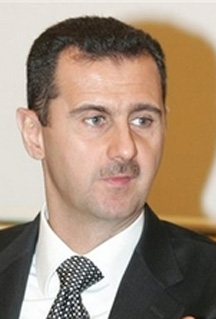MONTREUX, Switzerland, (Reuters) – Syria’s government and its enemies come face to face today for the first time as world powers try to set aside their own differences and push for an end to three years of civil war that is unsettling the entire Middle East.

A day of formal speeches under U.N. auspices at a hotel on Lake Geneva has raised no great expectations, particularly among Islamist rebels on Syria’s frontlines who have branded Western-backed opposition leaders as traitors for even agreeing to be in the same room as President Bashar al-Assad’s delegates.
A flap over a now withdrawn last-minute invitation to Iran, Assad’s main ally, highlighted tensions between the West and Russia and the sectarian rift in the Middle East between Sunni Arabs who support the rebels and the Shi’ite rulers in Tehran.
The release on the eve of the talks of thousands of photographs apparently showing prisoners tortured and killed by the government reinforced opposition demands that Assad must quit and face a war crimes trial. The president, who succeeded his father 14 years ago, insists he can win re-election and wants to talk about fighting “terrorism.”
Syrian Foreign Minister Walid al-Moualem rejected any discussion of Assad’s future. “The subject of the president and the regime is a red line for us and the Syrian people and will not be touched,” Moualem, who will lead the Damascus delegation, was quoted by Syria’s SANA news agency as saying.
Assad has been protected by Russia, his main arms supplier, which dislikes Western attempts to overthrow incumbent leaders.
But Washington and Moscow share alarm at the spread of the violence that has already killed more than 130,000 Syrians. Having set aside their differences last year to co-sponsor the talks that are finally getting under way, Russia and the United States profess an urgent common goal of halting the bloodshed.
Presidents Vladimir Putin and Barack Obama had a “businesslike” conversation on the issue by phone yesterday, while Russian Foreign Minister Sergei Lavrov met U.S. Secretary of State John Kerry in Montreux, where the talks will




